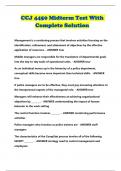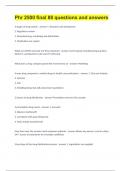UNIT 26 P4, M2 & D1
CARING FOR INDIVIDUALS WITH ADDITIONAL NEEDS
Working practices are any informal practice or custom which governs or influences
the way employees behave at work (Redgoldfish, 2015). The objective of this
assignment is to explain positive practices with additional learning needs discuss
positive working practices with additional learning needs and also evaluate working
practices and their potential for breaking down barriers and improving the wellbeing
and life changes of individuals with additional needs. Initially, I will explain what
services are, the principles of care, person centred planning, positive working
practices, supporting communication, supporting access, guidance and also
legislation. For the distinction, the assignment tends to look at the whether the
services are having a positive outcome on life changes, improving the health,
wellbeing and life opportunities.
SERVICES
There are three types of services and they are statutory, private and third sector.
Statutory sectors are part of the economy that provides government services. Private
sectors are part of the economy, but are controlled by individuals and companies.
The third sectors are nongovernmental and also they are non-profitable, unlike
private and public sectors (BusinessDictionary, 2015). There are different types of
services for individuals with additional needs and these services are day care,
hospitals, residential homes, community care, independent living, health centres and
also training and education.
Community care services help people who need care and support to live with
dignity and independence in the community and also to avoid social isolation. The
services are aimed at the elderly and those who have mental illness, learning
disability and physical disability. Community care describes the services and support
which helps people to continue to live independently at home. Individuals receive
community care due to an illness, physical or mental difficulties. Community care
provides domiciliary care, equipment’s aids and home adaptations, meals on wheels,
day care, respite care, recreational, occupational, education and cultural activities.
The benefits of community care is that it enables people to remain in their own home
CARING FOR INDIVIDUALS WITH ADDITIONAL NEEDS
Working practices are any informal practice or custom which governs or influences
the way employees behave at work (Redgoldfish, 2015). The objective of this
assignment is to explain positive practices with additional learning needs discuss
positive working practices with additional learning needs and also evaluate working
practices and their potential for breaking down barriers and improving the wellbeing
and life changes of individuals with additional needs. Initially, I will explain what
services are, the principles of care, person centred planning, positive working
practices, supporting communication, supporting access, guidance and also
legislation. For the distinction, the assignment tends to look at the whether the
services are having a positive outcome on life changes, improving the health,
wellbeing and life opportunities.
SERVICES
There are three types of services and they are statutory, private and third sector.
Statutory sectors are part of the economy that provides government services. Private
sectors are part of the economy, but are controlled by individuals and companies.
The third sectors are nongovernmental and also they are non-profitable, unlike
private and public sectors (BusinessDictionary, 2015). There are different types of
services for individuals with additional needs and these services are day care,
hospitals, residential homes, community care, independent living, health centres and
also training and education.
Community care services help people who need care and support to live with
dignity and independence in the community and also to avoid social isolation. The
services are aimed at the elderly and those who have mental illness, learning
disability and physical disability. Community care describes the services and support
which helps people to continue to live independently at home. Individuals receive
community care due to an illness, physical or mental difficulties. Community care
provides domiciliary care, equipment’s aids and home adaptations, meals on wheels,
day care, respite care, recreational, occupational, education and cultural activities.
The benefits of community care is that it enables people to remain in their own home











